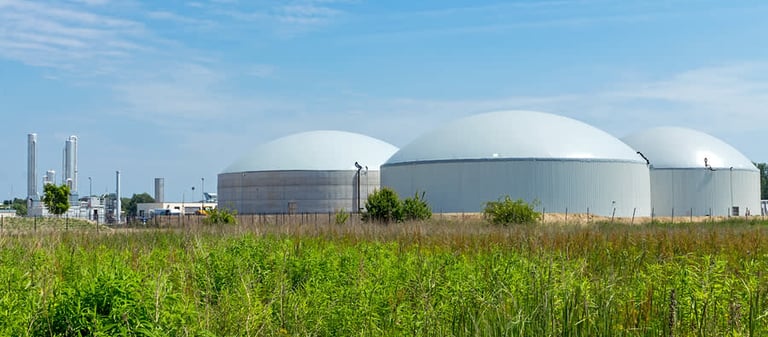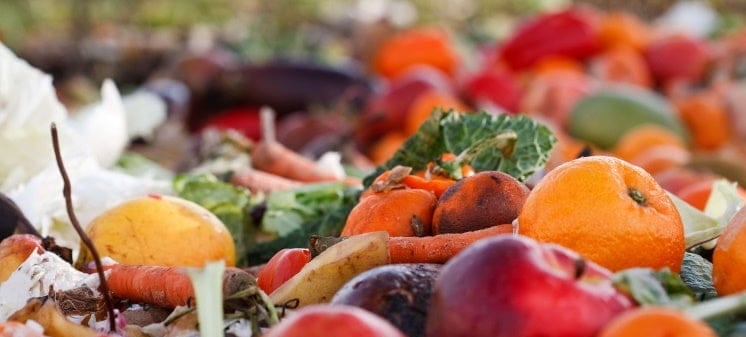Anaerobic Digestion and Bio-energy
Anaerobic digestion is acknowledged by the government, Defra, the Welsh Assembly, the Scottish Parliament, Friends of the Earth, and the National Farmers Union as one of the most effective methods for recycling food waste and managing farm waste and sewage sludge.
The term "anaerobic" refers to processes that occur in the absence of oxygen. In sealed tanks, biogas is naturally produced and utilised as fuel in a combined heat and power (CHP) unit, generating renewable energy in the form of electricity and heat.
The byproduct of this process is a nutrient-rich biofertilizer, which is pasteurised to eliminate any pathogens and stored in large covered tanks. This biofertilizer can then be applied to farmland twice a year, serving as a sustainable alternative to fossil fuel-derived fertilizers.
Recycling each tonne of food waste through anaerobic digestion, instead of sending it to landfill, prevents approximately 0.5 to 1.0 tonne of CO2 from entering the atmosphere, highlighting one of the many advantages of this method.
We offer a flexible range of services to ensure that all food waste is diverted from landfill, minimising the impact of waste transportation across the UK.


We offer a flexible array of services designed to divert all food waste from landfills while minimising the impact of waste transportation across our UK-wide network of licensed Anaerobic Digestion plants. This method is our primary approach for converting food waste into renewable energy.
Our recovery and containment solutions are diverse, including compaction systems, bulk containers, and wheelie bin collection services, tailored to meet the specific needs of each application.
Accepted Food Waste
Packaged and palletised food waste
Outdated and unsaleable food
Waste from food and drink manufacturing and processing
Production and finished bakery products



Email - info@ruralrecycling.org.uk
Phone - 01924 928649
© 2024. All rights reserved.
Unit 20, RCM Business Centre,
Sandbeds Trading Estate,
Dewsbury Road, Ossett,
WF5 9ND
Contact Us

